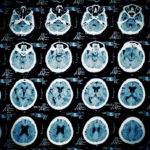Brain Injuries
- Brain injury can be caused b
 y medical negligence in a number of ways, including:
y medical negligence in a number of ways, including: - Cerebral Palsy due to birth injury or other causes.
- Subarachnoid haemorrhage
This is a sudden bleed in the brain, under the arachnoid membrane. It is a serious condition and can be life-threatening. Common symptoms are vomiting, severe headache, neck stiffness, slurred speech and visual impairment. Medical negligence can occur through a failure to recognise symptoms and delay in treatment.
Meningitis or encephalitis
Meningitis is an infection of the membrane that surrounds the brain and the spinal cord (the meninges). Many people have come across it through its high profile in the media. Viral meningitis is usually less severe than bacterial meningitis, which is life threatening and needs urgent treatment with appropriate antibiotics. It needs to be diagnosed and referred for treatment quickly. With early treatment, the prognosis is generally very good, but if there are delays the consequences can be disastrous and lifelong or can kill. Damage to the nervous system, can result in brain damage and permanent physical, mental and educational disability. Other complications include deafness and blindness and septicaemia, which can lead to limb amputations. Unfortunately, despite the notoriety of the condition, the signs and symptoms, (which may include severe headache, neck stiffness, fever, drowsiness, aversion to bright lights, cold hands and feet, confusion, irritability and muscle pains), can be missed, or misdiagnosed by GP’s and hospital doctors. The classic rash is not always present or may present at a late stage. Meningitis affects adults and children.
Encephalitis is an acute inflammation of the brain tissue and can be caused by viral infection, or sometimes, allergic reaction, or the patient’s immune system attacking the brain. Whilst it is different from meningitis, it is possible to have both at the same time if an infection spreads from the meninges to the brain tissue, or vice versa. Although less common than meningitis, the signs and symptoms (which can include fever, headache, drowsiness, photophobia, confusion and altered level of consciousness) are well known to doctors and should be picked up at presentation by clinical examination and the history given by the patient or their family. If treatment is given promptly, the outcome is usually very good. Sometimes, signs and symptoms are missed and treatment is delayed. Again the effects can be disastrous, including severe brain damage, leading to physical, mental and educational disability.
Anaesthetic complications
Surgery which involves general anaesthetic carries a risk and close monitoring of the patient is vital to ensure that they are not in any danger. Medical negligence can occur when a patient has not been properly monitored during surgery and recovery.
The patient can be injured due to a lack of oxygen (hypoxia) to the brain due to aspiration of foreign material or obstruction of the airway. If the obstruction is not removed promptly, permanent brain damage may occur.
Other complications during anaesthetic may include damage to the larynx (voice box) during intubation, allergic reaction to or overdose of anaesthetic or other medication, or damage to dentistry.
Failure to diagnose or adequately manage a head injury, including misinterpretation of scans and test results, can lead to brain damage.
The specialist claimant medical negligence solicitors at Chadwick Lawrence have a wealth of expertise in dealing with clinical negligence compensation claims of all types, including cases in which claimants have ended up with brain injuries due to medical errors. If you believe that medical negligence may have caused a member of your family or someone you know to suffer brain damage, please contact our specialist Legal Aid and no-win-no-fee medical negligence lawyers for free legal advice on: Freephone 0800 028 2969.
As well as compensation for the injury, pain and suffering, Claimants who have sustained brain damage due to medical negligence may receive compensation for:
- Loss of past and future earnings
- Past and future care and assistance
- The cost of adapting housing or building suitable accommodation
- Aids such as special beds and chairs, wheelchairs, and other equipment
- Cost of treatment such as rehabilitation, specialist orthotics and physiotherapy
- Additional transport/travelling costs and expenses




